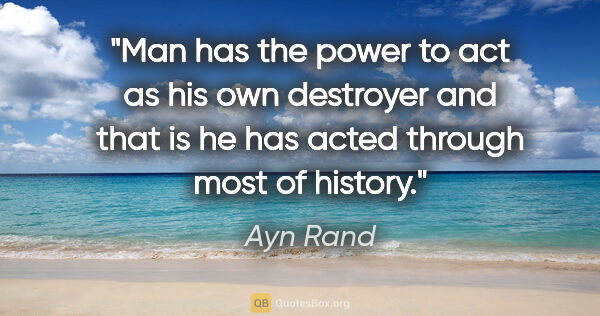Histories Quotes (page 35)
Someone once said that his favourite times in history were when things were collapsing, because that meant something new was being born. Does this make any sense if we apply it to our individual lives? To die when something new is being born - even if that something new is our very own self? Because just as all political and historical change sooner or later disappointments, so does adulthood. So does life. Sometimes I think the purpose of life is to reconcile us to its eventual loss by...
Julian Barnes
If the painful history of the human and Christian striving for God proves anything, it surely proves this: that any attempt to reduce God to the scope of our own comprehension leads to the absurd. We can only speak rightly about him if we renounce the attempt to comprehend and let him be the uncomprehended. Any doctrine of the Trinity, therefore, cannot aim at being a perfect comprehension of God. It is a frontier notice, a discouraging gesture pointing over to unchartable territory. It is...
Joseph Ratzinger
Poem Written in a Copy of BeowulfAt various times, I have asked myself what reasonsmoved me to study, while my night came down, without particular hope of satisfaction, the language of the blunt-tongued Anglo-Saxons. Used up by the years, my memoryloses its grip on words that I have vainlyrepeated and repeated. My life in the same wayweaves and unweaves its weary history. Then I tell myself: it must be that the soulhas some secret, sufficient way of knowingthat it is immortal, that its vast,...
Jorge Luis Borges
The proletariat could plan to massacre the whole ruling class; a fanatic Jew or black could dream of seizing the secret of the atomic bomb and turning all of humanity entirely Jewish or entirely black: but a woman could not even dream of exterminating males. The tie that binds her to her oppressors is unlike any other. The division of the sexes is a biological given, not a moment in human history. Their opposition took shape within an original Mitsein, and she has not broken it. The couple is...
Simone de Beauvoir
Horror grows impatient, rhetorically, with the Stoic fatalism of Ecclesiastes. That we are all going to die, that death mocks and cancels every one of our acts and attainments and every moment of our life histories, this knowledge is to storytelling what rust is to oxidation; the writer of horror holds with those who favor fire. The horror writer is not content to report on death as the universal system of human weather; he or she chases tornadoes. Horror is Stoicism with a taste for spectacle.
Michael Chabon
It is an observation suggested by all history, and by none more than by that of James I and his successor [Charles I], that the religious spirit, when it mingles with faction, contains in it something supernatural and unaccountable; and that, in its operations upon society, effects correspond less to their known causes than is found in any other circumstance of government.
David Hume

Our minds tell us, and history confirms, that the great threat to freedom is the concentration of power. Government is necessary to preserve our freedom, it is an instrument through which we can exercise our freedom; yet by concentrating power in political hands, it is also a threat to freedom. Even though the men who wield this power initially be of good will and even though they be not corrupted by the power they exercise, the power will both attract and form men of a different stamp.
Milton Friedman
This book is merely a personal narrative, and not a pretentious history or a philosophical dissertation. It is a record of several years of variegated vagabondizing, and it's object is rather to help the resting reader while away an idle hour than afflict him with metaphysics, or goad him with science.
Mark Twain

Real social change is a process that takes place over time, usually quite a long time. At a given moment in history, 99 percent of a society may think and act one way on a certain matter, and only 1 percent think and act very differently. In time, that 1 percent may become 2 percent, then 5 percent, then 10, 20, 30 percent, until finally it becomes the dominant majority, and social change has taken place.
John Holt

